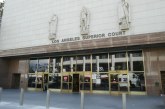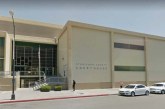 Yolo Chapter, California Grand Jurors’ Association
Yolo Chapter, California Grand Jurors’ Association
Sometimes the Yolo County Grand Jury addresses sensational topics, such as the recent expose of malfeasance in the probation department, or the delivery of an indictment in the Deputy Tony Diaz murder case. In most instances, its work and possibly it highest value lies in keeping tabs on more mundane activities. A major and very important function of the Yolo County Grand Jury is to see that county agencies and organizations, including special districts, are providing residents with good service. Every year the Grand Jury issues a report describing its investigations along with recommendations. Agencies are required to respond to these recommendations within 90 days (California Penal Code, Title 4, Sect. 933). However, by the time the responses come in, a new Grand Jury is in place.
As former grand jurors and members of the Yolo Chapter of the California Grand Jurors’ Association, we have followed up on previous Grand Jury recommendations. We selected responding agencies that stated they were either planning to implement a recommendation or needed time for further study. We wrote to agency heads listing earlier Grand Jury recommendations (along with their agency’s responses) and asked about the current status of the situation.
Here is our update for two departments. We do not imply that these departments were more remiss than others or that laws were broken. Rather, we wish to illustrate how citizen follow-up can improve the workings of county government.
Department of Employment and Social Services (DESS)
In 2009-10 the Grand Jury investigated the Department of Employment and Social Services (DESS) in response to a complaint alleging mismanagement, favoritism, and fraud. The Grand Jury found questionable practices with regard to timekeeping and pay for non-work related activities.
A review of calendars and e-mails showed that records regarding employee absences were incomplete. In two cases vacation and sick leave times were misrepresented. It appeared that one employee supplemented county disability benefits by claiming to work part-time at DESS in order to receive full pay and continue to accrue full leave benefits. In another instance, an employee, who worked part-time, accumulated full-time sick and vacation time by failing to turn in time sheets. Some employees were taking long lunches and going shopping during paid working hours, the activity being allowed as a “morale booster.” In addition there was evidence that some managers, in violation of the department’s written policy, were inappropriately telecommuting. The Grand Jury concluded its investigation, finding that the method of time keeping used by the department could permit fraud. It also found that the rules regarding telecommuting had not been enforced.
The following year’s Grand Jury (2010-11), believing that the issues raised in the previous year had not been fully resolved, conducted a further investigation of DESS. Although they found no further evidence of timekeeping misuse, there continued to be discrepancies and inadequacies in that system. DESS did not use a reliable timekeeping system to capture employee time worked on specific projects or jobs. Employees did not report hours worked on a daily basis. Inadequate internal controls to monitor hours worked continued to create a potential for fraud or accidental misrepresentation.
Where are we today? The Auditor-Controller has performed an audit of the department. The Interim Director of DESS indicated that the system now in place “provides for supervisorial approval, and appears to reduce the potential for fraud while providing an electronic audit trail.” He also stated that there were no telecommuting employees, a subject of previous concern. The Yolo County Board of Supervisors adopted a Policy on Employee Timekeeping (August 2011) that prescribes timekeeping practices for all employees of Yolo County “for the purpose of ensuring adequate accountability.”
However, by the Auditor-Controller’s own account, the county needs a more uniform and robust timekeeping system. The county is in the process of acquiring that, but it has not occurred. There are fragments of systems in place, some addressing the tracking of absences, but four units still use their own systems. And we don’t know whether a uniform attendance and leave policy is in place. It is our understanding that most counties have a single attendance policy and timekeeping system. We hope this will soon be in place in Yolo County and that it will apply to DESS.
Department of General Services (DGS)
The 2010-11 Grand Jury investigated allegations of timesheet falsification within one work group of the department. The allegations proved to be unfounded. However, the investigation revealed a lack of communication regarding personnel policies and procedures, both within the department and with the County Department of Human Resources (HR). As they did not have access to computers and didn’t receive the e-mail notifications of changes, employees in the DGS were not up-to-date on changes in County policies and procedures. For example, they were unaware that in August 2009 Yolo County adopted a County Whistleblower Policy and Procedure.
Since the report was published, the department’s functions have been incorporated into the reorganized Division of Administrative Services. The new Director’s response to the Grand Jury report was “Human Resources will create a system which will require department heads to verify they have kept employees up to date on policy and procedure changes.”
Where are we today? The County has developed a mobile system that visits every work site in the county twice annually. HR Mobile distributes policy and procedure information and mandatory training. It appears to be an innovative way to address the concerns identified in the 2010-11 Grand Jury report.
All of the information on which this article is based is posted on our website at http://groups.dcn.org/yolocgja




“Some employees were taking long lunches and going shopping during paid working hours, the activity being allowed as a “morale booster.”
Oh My God. Really. Come on, man.
If this pracice is being examined, every state agency in California will be in trouble. Give me a break. (No pun.)
A long lunch once in a while is nothing. All of my state jobs have required me to work THROUGH my lunch break to help my customers. For example, when I was helping someone with their computer, and we were just about done, and it was my lunch, should I have said: “Okay, I’m going to lunch. I’ll transfer you now to my co-worker, and you can start all over again, from scratch, and explain your problem to her.” Or should I continue to help the customer until their computer or printer is working again? Even if it took another 30 minutes? And if several people were out with the flu, was I supposed to let thousands of women, infants and children go without FOOD that day so I could sit in the break room eating? No.
Yes, I was given a longer lunch on another day, because my manager valued me.
” . . . being allowed as a ‘morale booster.'”
There are many ways a resourceful manager can boost morale. Rewarding exemplary behavior would be a good starting point.
Assuming this assertion is true, the “being allowed” implies that at some supervisory level there was tacit approval of behavior that is fraudulent. To me, that is where the Grand Jury investigation should have probed further. Supervisors were not supervising and a lengthy suspension or demotion would be the appropriate response–if there was a response.